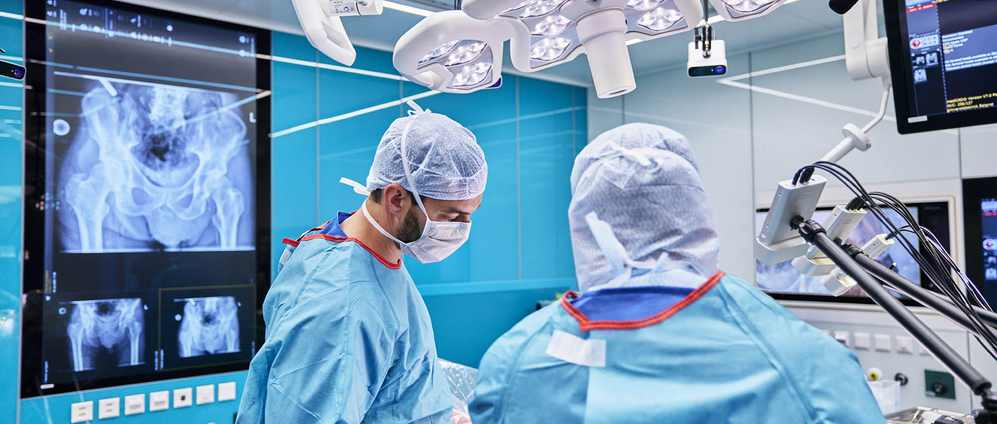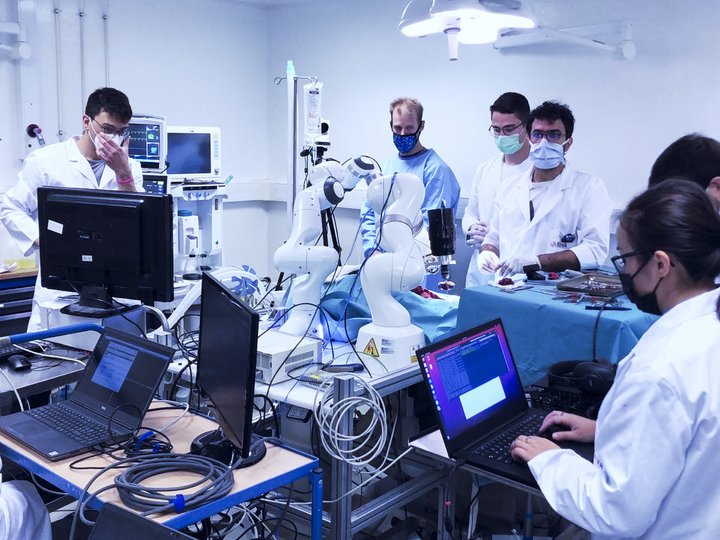Digitization as part of technological transformation will have a sustainable impact on the development of the healthcare sector over the coming years. In fact, technology will be the most important lever for advancing treatment quality while limiting the cost explosion, thereby addressing the major global healthcare challenges posed by an ageing society.
The OR-X tackles the key determining factors of digitalization in surgery:
- The automatic collection of surgery-related data,
- The application of data-driven methods to extract treatment-relevant information,
- The improvement of surgical treatments through human-enhancing technologies such as AI, robotics and Augmented Reality.

